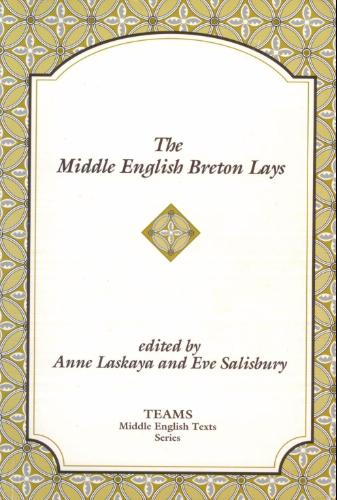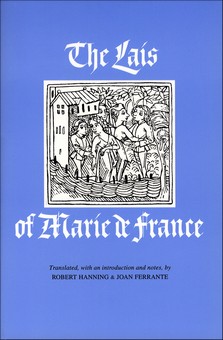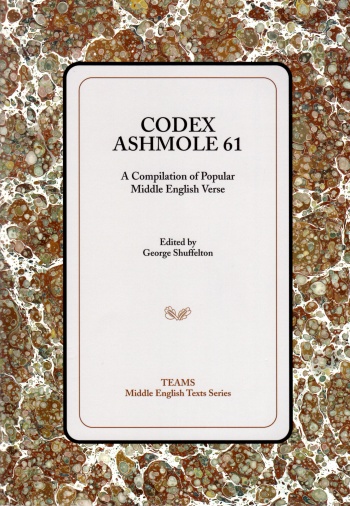In Medieval Object Ecologies (or, as I like to call it, MOE) we will get to know medieval English culture through some of its literary narratives. Our focus will be on texts written mostly by unnamed writers and read by unknown readers in the mid-1100s through the early 1500s. We will find that medieval narratives encourage us to orient our attention not on the human as a single, independent, exceptional being exerting its will on surrounding nonhumans. Instead, they reveal humans to be agents in a larger system of activity that includes nonhuman agents—a perspective that has much in common with the views of theorists working today in what is known as “the New Materialisms.” We will see what tools these thinkers in political science, ecological criticism, science and technology studies, feminist thought, history, and philosophy might give us for producing alternative readings of narratives written in England in the twelfth through fifteenth centuries—readings that might even bring us a bit closer to how audiences then may have read and experienced them.
We will read Middle English texts including:
romances, such as Sir Orfeo and Sir Launfal
Breton lais (a sub-genre of romance), including Sir Degare, Lay le Freine, and Marie de France’s Lais
conduct texts that instruct medieval humans in how to interact effectively with the
material world and that grant nonhumans entry into society (whereas we tend to see society as exclusively human)
saint’s lives such as the Life of St. Eustace and the Life of St. Margaret and exemplary narratives that depict the unfamiliar (to us) incorporation of the inanimate in medieval religious practice and belief.
These are the most popular genres of writing in the later middle ages in England, so they’re wonderfully representative of what people read, even as most of them are not, today, canonical.
We begin the semester working on ways to understand Middle English, the variety of English in which the majority of the literary texts we’ll be reading were written. (We will read some medieval texts in Modern English translation, while others we will read in Middle English.) Alongside that, we will perform initial readings of one Anglo-Norman Breton lai by Marie de France (translated into Modern English) and of one anonymous Middle English Breton lai. These will be a touchstone for us as we develop our interpretive tools by reading some vibrant materialism (as presented by Jane Bennett in her book Vibrant Matter, the first half of which we will read this semester) and some historical materialism (as practiced by Caroline Walker Bynum, whose ideas we will encounter in the second half of the semester). Simultaneously, we will be reading Middle English and Anglo-Norman romances, Breton lais, conduct texts, exemplary narratives, and saint’s lives.
You will write one short essay in the first half of the semester, trying out on one text what it feels like to deploy some of the new approaches we’re discussing. After a midterm exam, we will shift focus to the final research project. (You will also produce and share with/perform a creative project for the class at the end of the semester.) The last third of the semester will be full of many literary texts, having equipped ourselves by that point with a range of object-oriented approaches to apply to these texts.
This course fulfills the Cultural Studies requirement of the English major.
General Education Student Learning Outcomes, Humanities
1. Students analyze how ideas are represented, interpreted or valued in various expressions of human culture.
2. Students examine relevant primary source materials as understood by the humanities area under study and interpret the material in writing assignments.
These outcomes will be assessed using the Analytical Research Paper.
Required Texts:
| Jane Bennett. Vibrant Matter: A Political Ecology of Things. Durham, NC: Duke University Press, 2010. [ISBN: 978-0-8223-4633-3] | Middle English Breton Lays. Ed. Anne Laskaya and Eve Salisbury. Middle English Text Series. Kalamazoo, MI: Medieval Institute Publications, 1995. [ISBN: 978-1879299621]AVAILABLE FREE ONLINE! |
 |
 |
| Caroline Walker Bynum. Christian Materiality: An Essay on Religion in Late Medieval Europe. NY: Zone Books, 2011. [ISBN: 978-1935408109] | Marie de France. The Lais of Marie de France. Trans. Robert Hanning and Joan Ferrante. Baker Books, 1995. [ISBN: 978-0801020315] |
 |
 |
| Codex Ashmole 61. Ed. George Shuffelton. Middle English Text Series. Kalamazoo, MI: Medieval Institute Publications, 2008. AVAILABLE FREE ONLINE ! | |
 |
